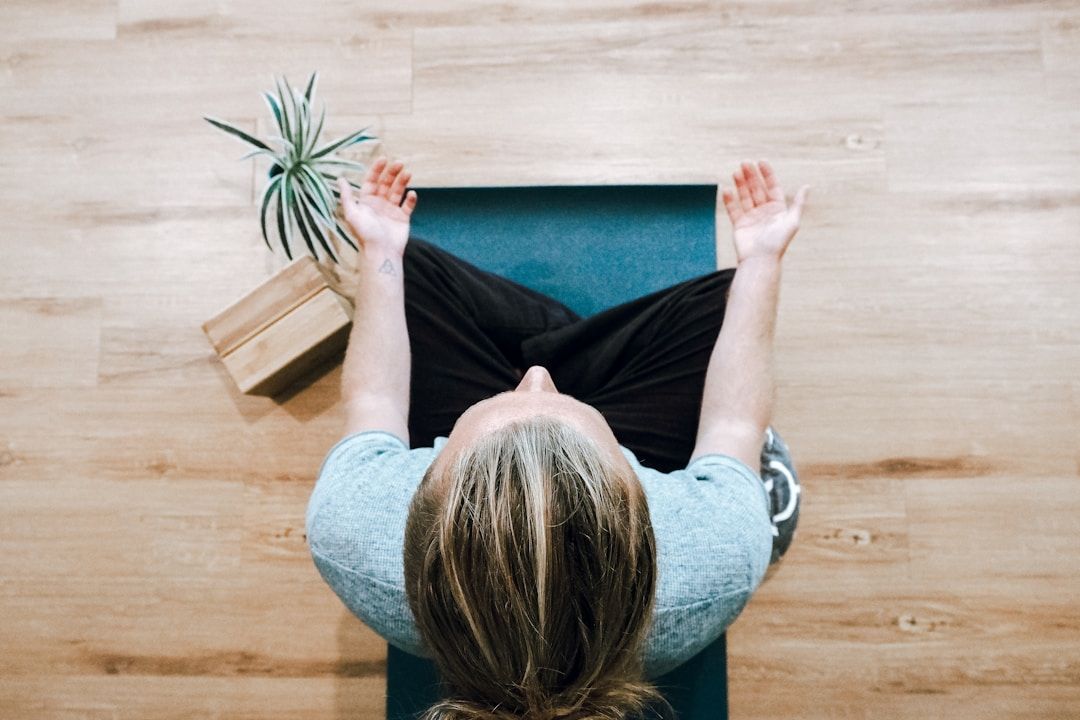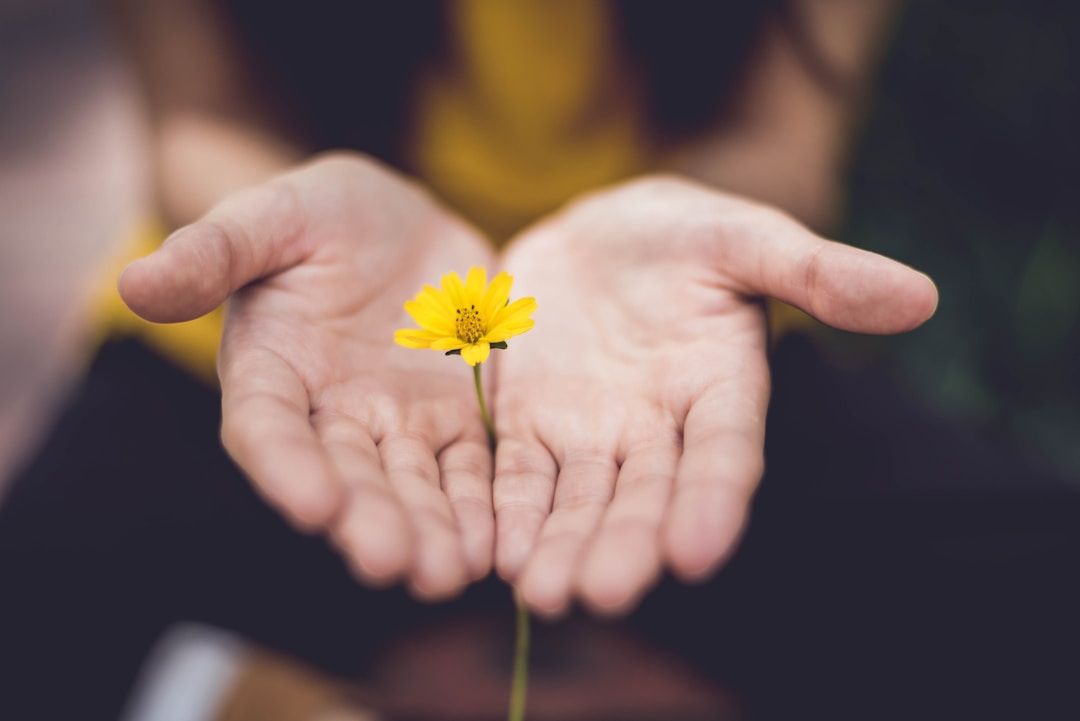The why’s and how’s of our mindful practices matter.

It certainly feels like mindfulness has had its moment over the past decade. Every next app and podcast promises to optimize your presence and productivity, break you free from limiting beliefs, or help you be less stressed, more relaxed and regulated.
These are worthy intentions. Who doesn’t want to feel a little more calm or connect with freedom and focus in their lives? But what happens when we cling a little too strongly to these expectations and use our practice as a way of controlling unpleasant experiences, “fixing” ourselves, or chasing after “good vibes only”?
A cross-sectional study at the SUNY University at Albany explored these questions with a group of 98 meditators in 2022 (Tiff, 2022). Participants who reported meditating with intentions to control, manage, or avoid difficult experiences (58.2%) were significantly more likely to report greater worry, negative affect, anxiety, depression, and lower dispositional mindfulness when compared to participants who reported acceptance-guided intentions through practice for being present and receptive with inner experiences.
Meditation is not a quick and easy “fix”.

The why’s and how’s of our mindful practices matter. Meditation is not a quick and easy “fix”. It doesn’t necessarily eliminate inner or outer difficulties. In fact, as self-awareness increases, there can be a lot from within to encounter as we notice more. Maybe we hear that judgy, hypercritical inner voice. Maybe we feel subtle pangs of tender grief in the heart or notice the soundtrack of a nagging old thought pattern playing in the background of mind.
Just as we may come across things we don’t like so much, mindful practices also help uncover innate strengths of our awareness from within to be able to meet and be with the wholeness of who we are in more steady and spacious ways.
Yoga philosophy teaches that santosha (contentment) and ānanda (peaceful joy) don’t necessarily arise by grasping for them or feeling “good” directly. They arise as a consequence of intentionally caring for ourselves through all of our phases by inviting supportive attitudes and ways of being that nurture skillful discernment, wise openness of heart, and flexibility of mind.
So what are the intentions and attitudes that support mindful attending? There are many. Patanjali’s Yoga Sutras outline a list of ten moral and ethical considerations for practice. Schools of Buddha dharma across Asia share various lists of ethical invitations and factors for awakening to awareness. Tāntrik, Vedantic, Sikhi, and Jaina traditions of South Asia include similar supports and additional ones.
Modern mindfulness teachers often draw from these philosophies and other world traditions, as well as Western psychological understandings. The most commonly evoked attitude is non-judgement or non-harming (ahiṃsā). By bringing a quality equanimous love to the ways we witness and engage with our inner world, ahiṃsā nurtures clear discernment, helping us to reduce harm from within and open to intuitive, creative insights as we relate with the nature of this life.
For opportunities to put ahiṃsā and other supportive attitudes into practice, join the Vishuddha community for Dr. Rashmi’s monthly Melting into Being yoga sessions.
Tifft, E.D.; Underwood, S.B.; Roberts, M.Z.; Forsyth, J.P. Using Meditation in a Control vs. Acceptance Context: A Preliminary Evaluation of Relations with Anxiety, Depression, and Indices of Well-Being. J. Clin. Psychol. 2022, 78, 1407–1421.
Just as we may come across things we don’t like so much, mindful practices also help uncover innate strengths of our awareness from within to be able to meet and be with the wholeness of who we are in more steady and spacious ways.
Yoga philosophy teaches that santosha (contentment) and ānanda (peaceful joy) don’t necessarily arise by grasping for them or feeling “good” directly. They arise as a consequence of intentionally caring for ourselves through all of our phases by inviting supportive attitudes and ways of being that nurture skillful discernment, wise openness of heart, and flexibility of mind.
So what are the intentions and attitudes that support mindful attending? There are many. Patanjali’s Yoga Sutras outline a list of ten moral and ethical considerations for practice. Schools of Buddha dharma across Asia share various lists of ethical invitations and factors for awakening to awareness. Tāntrik, Vedantic, Sikhi, and Jaina traditions of South Asia include similar supports and additional ones.
Modern mindfulness teachers often draw from these philosophies and other world traditions, as well as Western psychological understandings. The most commonly evoked attitude is non-judgement or non-harming (ahiṃsā). By bringing a quality equanimous love to the ways we witness and engage with our inner world, ahiṃsā nurtures clear discernment, helping us to reduce harm from within and open to intuitive, creative insights as we relate with the nature of this life.
For opportunities to put ahiṃsā and other supportive attitudes into practice, join the Vishuddha community for Dr. Rashmi’s monthly Melting into Being yoga sessions.
Tifft, E.D.; Underwood, S.B.; Roberts, M.Z.; Forsyth, J.P. Using Meditation in a Control vs. Acceptance Context: A Preliminary Evaluation of Relations with Anxiety, Depression, and Indices of Well-Being. J. Clin. Psychol. 2022, 78, 1407–1421.
Deepen in Your Mindfulness Journey Today
Thank you! Please be sure to check your promotions and spam box for the email with your complimentary book.
Get Your Copy Now
Thank you! Please be sure to check your promotions and spam box for the email with your complimentary book.
What is the Vishuddha Community?
FAQ
Answers To Your Questions
What does the Vishuddha membership include?
Our membership offers access to exclusive content, personalized coaching sessions, monthly classes, and a vibrant community of like-minded individuals. You'll also receive special invitations to webinars and live events, and continuous support from the Vishuddha team.
What qualifies a clinician in integrative and lifestyle medicine?
Certification might be obtained through reputable organizations such as the American Board of Integrative Medicine (ABOIM) or the American College of Lifestyle Medicine (ACLM). However, it can also include a course of self-study or newfound interest. Clinicians trained in this field use a variety of therapeutic approaches, including diet and nutrition, physical activity, stress management, and other non-pharmacological methods to prevent, treat, and often reverse chronic diseases. Their practice emphasizes patient-centered care (not disease-centered care), where the patient and practitioner are partners in healing.
A clinician qualified in integrative and lifestyle medicine typically holds a professional healthcare degree, such as MD, DO, NP, or PA, and has received additional training and certification in integrative and lifestyle medicine approaches; however, this is not essential. This specialized training combines conventional medical practices with evidence-based, holistic methods that consider the spectrum of physical, emotional, environmental, and nutritional factors affecting health.Certification might be obtained through reputable organizations such as the American Board of Integrative Medicine (ABOIM) or the American College of Lifestyle Medicine (ACLM). These clinicians are trained to use a variety of therapeutic approaches, including diet and nutrition, physical activity, stress management, and other non-pharmacological methods to prevent, treat, and often reverse chronic diseases. Their practice emphasizes patient-centered care, where the patient and practitioner are partners in healing.
Who is the Vishuddha membership for?
The Vishuddha membership is designed for individuals who identify as women in the field of integrative and lifestyle medicine who are seeking to deepen their understanding and practice in integrative and lifestyle medicine, personal growth, and community connection.
How often are new courses and content released?
We add new courses and stand-alone events monthly. We also update our resources regularly to ensure you have access to the most current and relevant information in integrative and lifestyle medicine. Please look particularly for upcoming events related to Ayurveda and Yoga.
Can I cancel my membership at any time?
Yes, you can cancel your membership at any time. We strive to make the cancellation process straightforward and hassle-free, allowing you to make the best decision for your needs.
Is there a trial period for new members?
We occasionally offer a trial period for new members. Please check our website or contact us directly for current details about trial availability.
How do I Join?
Sign Up
Get Access & Connect
Embrace Your Journey


